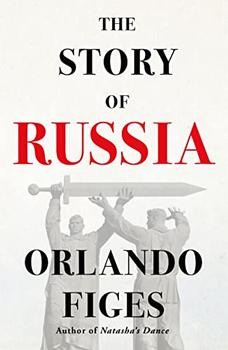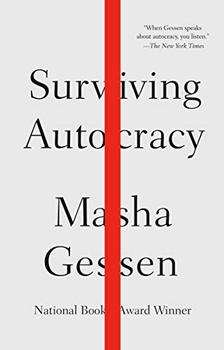Summary | Excerpt | Reviews | Beyond the book | Read-Alikes | Genres & Themes | Author Bio

The Unlikely Rise of Vladimir Putin
by Masha GessenThe chilling account of how Vladimir Putin, a low-level, small-minded KGB operative, ascended to the Russian presidency and destroyed years of progress to make his country once more a threat to her own people and to the world.
The Man Without a Face is the chilling account of how a low-level, small-minded KGB operative ascended to the Russian presidency and, in an astonishingly short time, destroyed years of progress and made his country once more a threat to her own people and to the world.
Handpicked as a successor by the "family" surrounding an ailing and increasingly unpopular Boris Yeltsin, Vladimir Putin seemed like a perfect choice for the oligarchy to shape according to its own designs. Suddenly the boy who had stood in the shadows, dreaming of ruling the world, was a public figure, and his popularity soared. Russia and an infatuated West were determined to see the progressive leader of their dreams, even as he seized control of media, sent political rivals and critics into exile or to the grave, and smashed the country's fragile electoral system, concentrating power in the hands of his cronies.
As a journalist living in Moscow, Masha Gessen experienced this history firsthand, and for The Man Without a Face she has drawn on information and sources no other writer has tapped. Her account of how a "faceless" man maneuvered his way into absolute - and absolutely corrupt - power has the makings of a classic of narrative nonfiction.
This is incredibly brave journalism - her account of Putin's single-minded and gradual takeover of Russia is breathtaking, if at times relentlessly critical. Gessen's crisp writing style makes The Man Without a Face read like a well-paced page-turner. One doesn't need to know much about Russian politics to truly enjoy this book - Gessen gives readers enough historical background so that those without prior knowledge of the underlying geopolitics can still appreciate the book...continued
Full Review
(912 words)
This review is available to non-members for a limited time. For full access,
become a member today.
(Reviewed by Poornima Apte).
It is during her reporting in Chechnya, during the separatist wars that ravaged the country, that journalist and author Masha Gessen got deeply involved in the larger political context of both the war and Russian President Vladimir Putin's handling of it.
Chechnya lies to the south of the Russian Republic and is bound by Russia on almost all sides - it shares a border with Georgia high in the Caucasus Mountains. The secession attempts following the dissolution of the Soviet Union in 1991 were just a couple of many periods of disturbance Chechnya has witnessed. The republic, whose population currently stands at around one million, has been in almost constant battle against foreign rule since at least the 15th century. In ...
This "beyond the book" feature is available to non-members for a limited time. Join today for full access.

If you liked The Man Without a Face, try these:

by Orlando Figes
Published 2023
From "the great storyteller of Russian history" (Financial Times), a brilliant account of the national mythologies and imperial ideologies that have shaped Russia's past and politics - essential reading for understanding the country today.

by Masha Gessen
Published 2021
A bestselling, National Book Award–winning journalist's bracing elucidation of our tumultuous times.